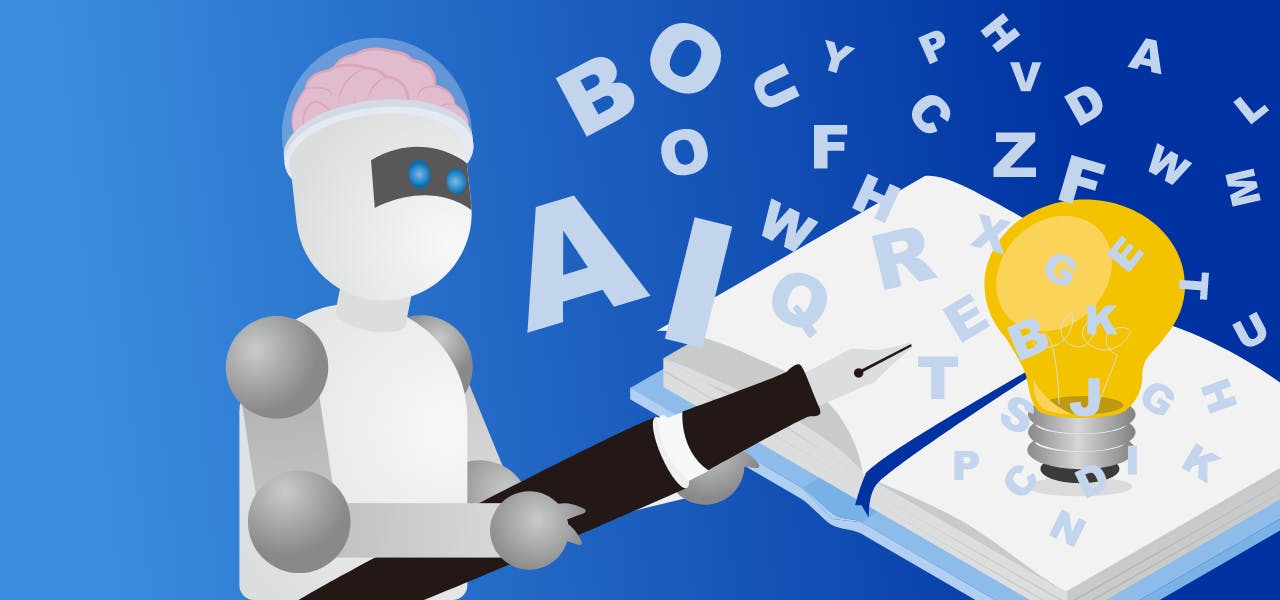Artificial intelligence (AI) is everywhere, from our smartphones to our Alexas and Google Homes in the average household. The Digital Era has evolved significantly over the past decade and continues to do so at a breakneck pace. Even with all the technology we’ve seen, though, we’ve barely scratched the surface of what AI can do.
As the new innovations of artificial intelligence slowly take over everything from businesses to media, we have yet to see limitations. What is apparent is that AI can do so much more than most people imagined. While it was expected that artificial intelligence would be able to compose texts based off of computerized formulas, recent studies have shown that some versions of AI have been able to compose text creatively, too! These results have proven that scholars in the academic field need to reconceptualize how the future of academic text writing is going to look for further generations of research students.
The Inception of AI in Academics
Children born in the past twenty years have grown up exposed to technology beyond any generation before them. They see smartphones and big-screen TVs as standard rather than miraculous and expect instant answers through Google searches. This is a controversial topic for many adults who don’t believe that everything should revolve around technology, but educators and psychologists also understand that the academic world should be preparing future generations to understand and master technology on at least a minimum foundational basis because it’s the way their new world is headed. Ignoring it or stifling it is doing students a disservice.
This educational paradigm has brought artificial intelligence and machine learning into the classroom, increasing the exposure students have to computerized technology by more than double what their parents likely had. Although teachers continue to remain critical to the classroom presence, their job is being redefined with the inclusion of AI in areas such as:
● Streamlining administrative tasks such as grade book recordkeeping, attendance, and lesson planning
● Increasing the resources available to enhance individualized and differentiated instruction
● Making it easier to include everyone in a subject, including those who speak other languages predominantly
● Giving students access to supportive resources from home
All of these areas need the instructor as a framework guiding the knowledge dissemination, but the ability to use AI has given the teachers the opportunity to more thoroughly delve into their objectives.
Using AI to Write Academic Texts
As machine learning and AI increase in sophistication, we are realizing the ability to push the limits farther than expected. Currently, software processes exist that are able to use natural language generation (NLG) to produce content for businesses, emails, and communication purposes so fluidly that if the reader wasn’t expecting it, they’d assume they were talking to a person. These are frequently called ‘bots,’ and are used online by tens of thousands of businesses today.
The idea of natural language generation is being used to reconceptualize how academic texts are going to b written in the future. Will students even be expected to write their own content anymore, or just learn to format their NLG software programs?
With NLG, the user must first define the content they want and the format required, such as a social media post, a poem, or a research paper. These designs are the template that the software provider offers and are becoming increasingly sophisticated. In fact, many media outlets are replacing human-written pieces with NLG output.
This will bring up ethical questions as the determination of whether NLG written content is acceptable in the classroom. Since the end-goal is for the piece to sound human-generated anyway, the struggle may be setting up a framework to be able to determine the difference between these AI-created submissions and those written by the students themselves. When it comes to grading, it’s not too big of a deal - until you start bringing in the scholarships awarded based on GPAs, the grants given because of an essay, and other award systems that have their foundation on the knowledge of a student, not that of something written by a computer.
